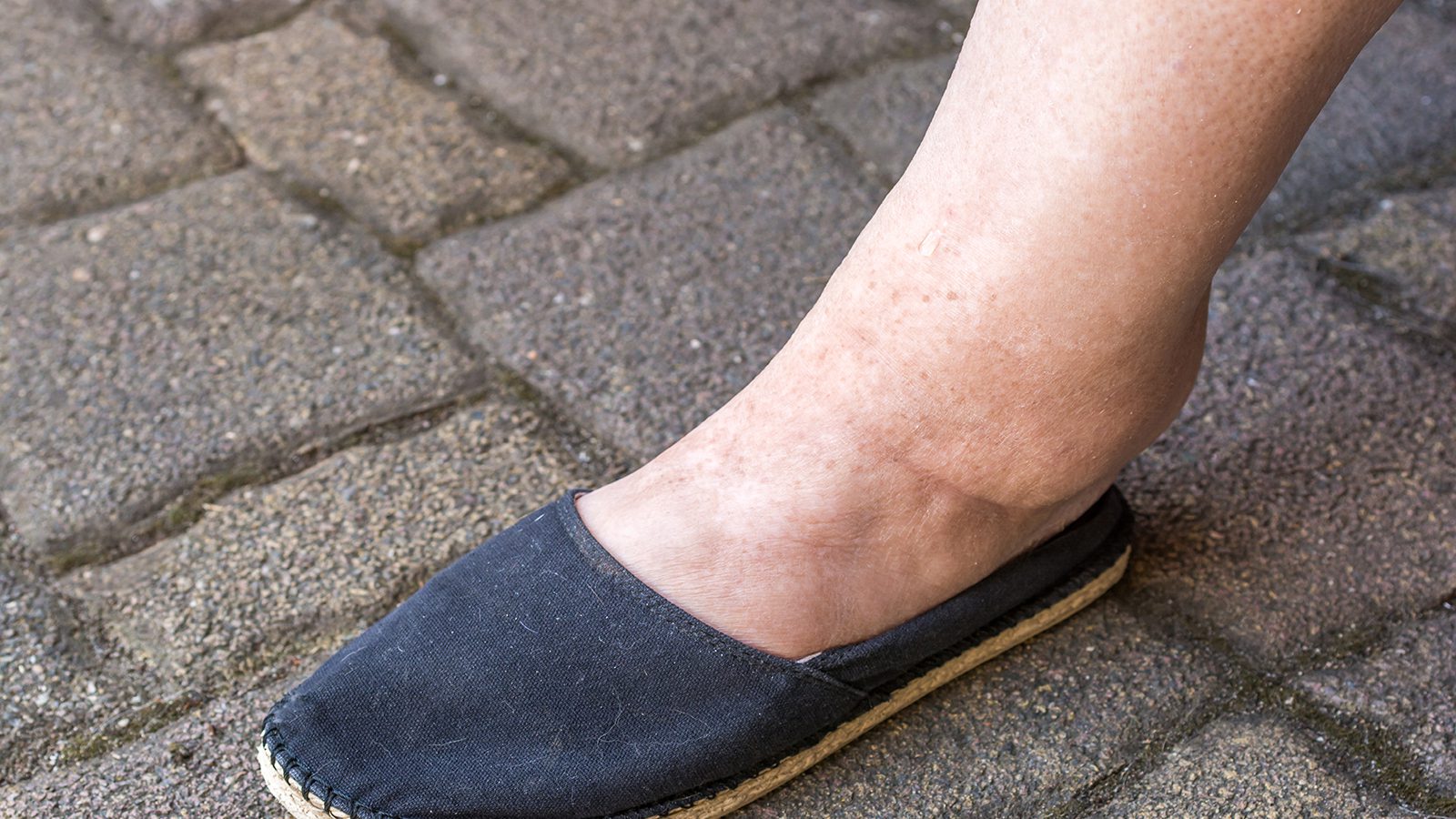Have you ever had to deal with excessive swelling and discomfort? Are you suddenly gaining weight without having changed your diet and lifestyle? Do you notice changes in skin color or even shiny and puffy skin? All these symptoms point toward water retention.
Water retention is quite common, yet people don’t know how to identify it. Also known as fluid retention, it’s one of the body’s primary mechanisms for maintaining fluids. But, for various reasons, the body doesn’t always hold just the right amount. Often, there are problems with different mechanisms of the body that make it so that more fluids are retained than necessary. When that happens, you will suffer from various symptoms, mainly swelling and discomfort.
For most cases of water retention, the issue will resolve itself. Still, water retention can aggravate and cause serious problems, in which case you’ll need to consult a doctor. The best way to avoid dealing with the issue is to prevent it altogether. While some causes are unavoidable, you can manage many of them. In most cases of water retention, your lifestyle causes the issue. If you tweak some of your habits, you’ll significantly lower the probability of dealing with this issue. To better understand why water retention happens, keep reading.
Symptoms of Water Retention

As you might already know, the human body is composed of up to 60% water. So, it’s no surprise that it needs to retain fluids to function normally. For this reason, there are mechanisms to ensure that some of the fluids that enter the body stay there. As the human body isn’t perfect, sometimes these mechanisms fail, and the body retains too many fluids. And this retention induces some unwelcomed changes and symptoms.
Swelling
The primary symptom of water retention is swelling, affecting all parts of the body. Still, this swelling is more noticeable in the extremities (hands, arms, feet, legs, and ankles). This is probably the first symptom you’ll notice if you are dealing with water retention. This leads to discomfort and can even cause severe pain. This swelling, also known as edema, can be categorized as pitting and non-pitting. Pitting edema is when, if you press on the skin, it will leave a dent. Non-pitting edema is when no imprint appears after pressing on the skin.
Unexplained Weight Gain
Another common symptom is sudden weight gain, known as water weight. The body can retain up to five pounds of excess fluid alone. This often causes bloating in the stomach area but can even be noticed in other body parts. If, for example, your rings don’t fit suddenly, that’s because your body retained fluids. The weight you gain often goes away in a few days when dealing with water retention. But you might be dealing with weight fluctuations if you’re struggling with retention.
Changes in the Skin
Changes in skin color and texture are other potential changes. Puffiness and shiny skin can signify that your body holds too much fluid. But they aren’t something to be worried about, as they don’t cause any pain or physical discomfort.
3 Causes of Water Retention
If you have swelling, look for these things.
1. High Salt Intake Contributes to Water Retention
Salt is one of the parts of our diets that we can’t seem to let go of. Without it, almost any food is bland. It is a flavor enhancer, meaning that it boosts the taste of everything we eat. It’s so versatile that even recipes for sweets require it. But salt is tricky to deal with, as an excess can cause various health issues. One of the outcomes of excess consumption of salt is water retention. This is because salt has a high percentage of sodium, which plays an essential role in regulating fluid retention.
Without consuming any sodium, your body would almost not be able to retain any fluids. Because of that, the average adult needs to consume no less than 180 milligrams of sodium per day and no more than 1500 milligrams. Consuming more than 2300 milligrams is already an issue. Yet, the CDC has concluded that the average American adult has an intake of over 3400 milligrams of sodium per day.
An intake of 400 milligrams of sodium equals eating a gram of table salt. Even this tiny amount causes retention of around two pounds of water. So, the more salt you eat, the more water you’ll retain. But overconsumption of sodium causes many other health concerns, like high blood pressure. If this overconsumption happens over a prolonged period, the risk of heart attack and stroke increases.
2. Swelling Resulting from Menstruation and Hormonal Changes
The hormonal imbalances that cause water retention affect women primarily because of menstruation and menopause. Of course, specific hormonal imbalances can cause water retention in men too. But the menstrual cycle makes it so that hormonal imbalances happen more often, thus disproportionately affecting women.
Most women experience mild symptoms of bloating and swelling the day before their menstruation starts. In some cases, these symptoms can appear as early as five days before menstruation begins. This last instance is often indicative of PMS (premenstrual syndrome). But, in most cases, water retention peaks on the first day of menstruation. Studies show that this peak happens when oestradiol and progesterone levels are at their lowest during the cycle.
Water retention is also common during pregnancy, as protein levels increase during this period. Also, the extracellular fluid, plasma, and blood volume increase, meaning that your body holds more liquids than it usually does. But water retention can also happen during menopause, as in this period, the body deals with a considerable loss of estrogen. This loss is associated with increased salt sensitivity, meaning your kidneys retain more salt than usual.

3. Diseases Can Cause Water Retention
While this is not the leading cause of water retention, it’s the most serious. Various diseases can affect different mechanisms, causing the body to retain more water than it should. You won’t be able to tell right away that an infection causes this retention. But, if it persists, you should be aware of the possibility of a more significant problem causing it.
The kidneys control the levels of fluids in your body, along with other things. They also filter the blood and remove toxins from the body. Some of the substances that are filtered through the kidney are reabsorbed, like water. Others, like potassium, are eliminated through urine. Any issue affecting the kidneys can cause severe damage. Chronic kidney disease is the leading public health concern worldwide.
And one of the problems it creates is water retention, as the kidney can’t accurately control the levels of fluids in the body. The kidneys start releasing fewer fluids, sometimes causing kidney failure in the worst case. Dialysis can only solve the issue to a certain extent. In some cases, a kidney transplant is the only treatment.
Another severe disease that can cause water retention is heart failure. This is also connected with the kidneys, as a weak heart pumps less blood to the kidneys. As less blood is pumped, thus the kidneys receive less blood. As a result, they don’t have enough fluids to pump back into the body. So, to keep sending enough blood to the kidneys, the blood retains more fluids.
How to Reduce the Swelling
In most cases, water retention is an issue that will get solved by itself in a few days. Still, a healthy lifestyle and diet can be good to prevent and treat it. Using less salt in your diet is one of the first things you need to do if you’re struggling with water retention. Exercise is also good, as it eliminates excess fluids through sweat. Even though it seems counterintuitive, drinking more water can also help ease symptoms of water retention.
To ease immediate symptoms of swelling, you can try massaging the affected areas by stroking the heart. This will improve blood circulation, thus helping the body release fluids. Elevating the affected part of the body above the heart will get the same effect. A doctor can even recommend some exercises you can do to ensure your fluid level is always under control.
If you can’t solve the issue of water retention by changing your lifestyle, you can check with your doctor and get prescribed diuretics. These are pills that help the body release excess fluids through urine. You also need to be aware that the water retention might indicate underlying medical conditions. If the issue persists, you need to schedule an appointment with a doctor for a check-up.
If the issue is hormonal, some pills can help you stabilize your hormone levels. In the worst-case scenario, the water weight will show that you are dealing with serious issues, like chronic kidney disease or heart failure. In that case, your doctor will recommend hospitalization or at least ongoing medical supervision.
Final Thoughts on Things That Cause Water Retention and How to Reduce the Swelling
Water retention is quite common, and various factors can cause it. In most cases, it’s nothing to be worried about. Our bodies constantly fluctuate depending on how we go about our day. Some days you’ll eat more salt or exercise less, which will cause some water retention. Even hormonal imbalances caused by natural things, such as menstruation and pregnancy, can affect how much fluid the body holds.
Though water retention is generally nothing to be worried about, it can also indicate severe underlying conditions. Any disease that affects the kidney will inevitably cause water retention. The most worrying illnesses that cause it are chronic heart disease and heart failure. Even hormonal conditions can cause it.
In most cases, the water retention will solve by itself in a few days. If you have a healthy lifestyle, you won’t even have to deal with this issue very often. But, if the problem persists, you need to see a doctor for a check-up. If the cause of water retention is a disease, you will need to get the proper treatment.



















